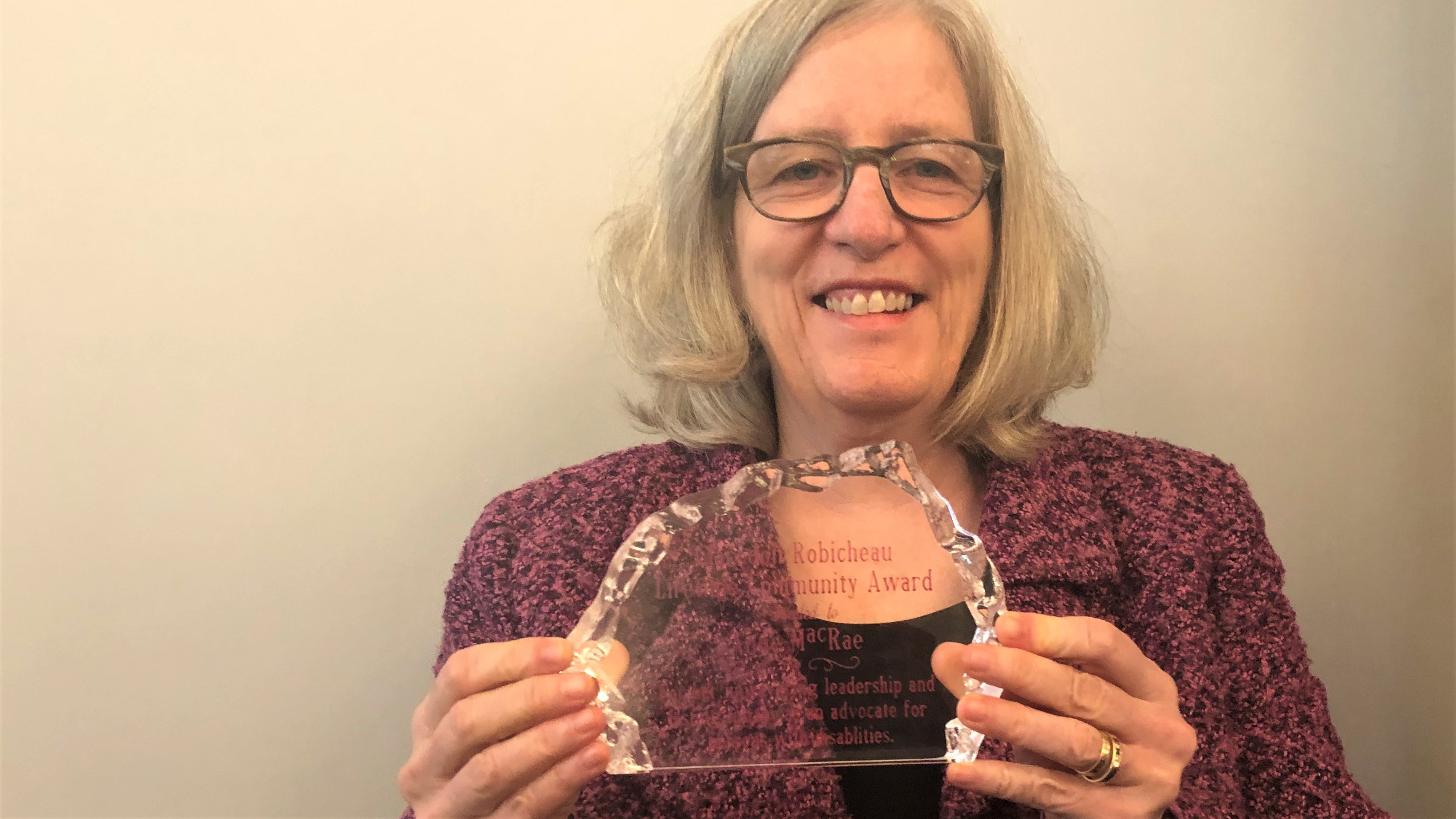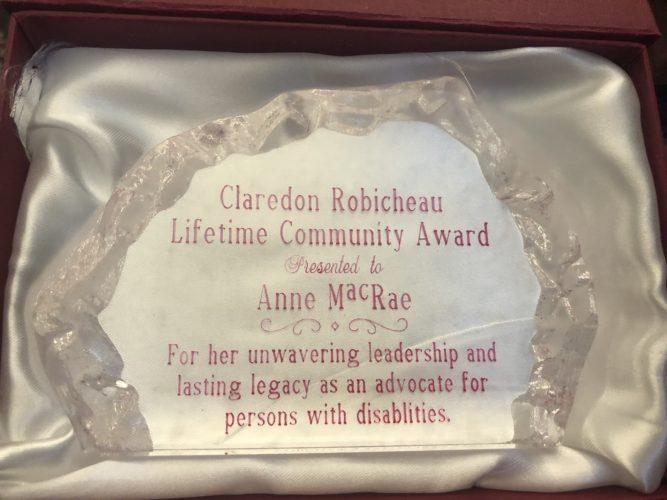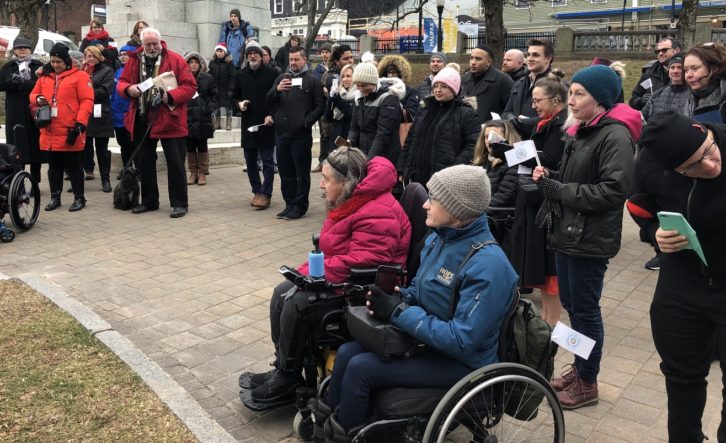Accessibility advocate wins award on International Day of People with Disabilities
Anne MacRae named first recipient of the Claredon Robicheau Lifetime Community Award

caption
Anne MacRae poses with her award.Anne MacRae was “dumbstruck” to be the first recipient of the Claredon Robicheau Lifetime Community Award, which recognizes people who show leadership and advocate for inclusion and accessibility for people with disabilities.
MacRae picked up the award at a ceremony Monday in Halifax. She said disabilities are “something that we can all acquire at some point.”
“I think it’s really important that we provide a society that allows everybody to participate fully,” she said.
MacRae knew Robicheau personally, and worked with him on many committees dedicated to accessibility. “He really embodied the kind of people that we need in our movement,” she said. Related stories

caption
The Claredon Robicheau Lifetime Community Award.Robicheau was an accessibility activist who died in January 2018. The award named in his honour will be given every year on the International Day of People with Disabilities.
MacRae started her accessibility work in Halifax, with the Society of Deaf and Hard of Hearing Nova Scotians. She was born deaf in one ear, and had an autoimmune issue that caused tinnitus.
MacRae also helped set up a program that provides human support, as well as technical support, for employees with disabilities.
“While kids are in school and university, they have access to those supports. But once they leave university, those supports get left behind,” MacRae said.
Before MacRae received the award, Sherry Costa, provincial co-ordinator for the Nova Scotia League for Equal Opportunities, talked about Robicheau’s life.
“It took us a while to go through that grieving process,” said Costa. “Having gotten over the initial shock, we felt healed enough to be able to put together an award that would be his legacy.”
Robicheau developed muscular dystrophy at age 19. He spent six years as a representative on the Council of Canadians with Disabilities and 10 years working with the Nova Scotia League for Equal Opportunities.
He worked with the Bill 59 Alliance, helping draft Nova Scotia’s Accessibility Act, which sets out to make Nova Scotia accessible by 2030. For this work, he received the Nova Scotia Human Rights Award.
MacRae also worked on this accessibility legislation. She went around the province asking people with disabilities what they wanted to see in the act.

caption
A crowd watches the International Day of People with Disabilities flag raising at Grand Parade.Costa said MacRae was chosen for “her passion, her commitments, her knowledge of the community, her desire to leave a positive impact and her understanding of the issues.” She has worked with MacRae in a number of projects, including Access Awareness Week.
Equal access and opportunities
According to Statistics Canada, 30.4 per cent of Nova Scotians had some form of disability as of 2017. This percentage is higher than the Canadian average, 22.3 per cent. That same year, a third of employees ages 25-64 needed at least one workplace accommodation, including a modified workstation and human or technical support.
Robicheau also founded Transport de Clare in 1996, a transit service for seniors and people with disabilities.
Currently Halifax Transit’s buses are wheelchair accessible, and the stops are also announced over the speakers. There is also Access-A-Bus, for those who cannot use regular transit buses.
“We need everybody to participate,” said MacRae. “Too often, people with disabilities are left on the sidelines.”
About the author
Kristin Gardiner
Kristin is a Prince Edward Islander currently working in Halifax. Her journalistic interests lie in copy editing and longform features.
